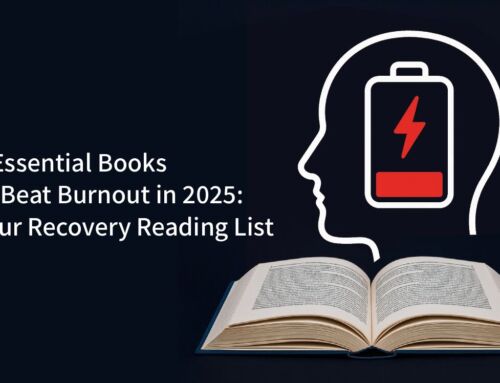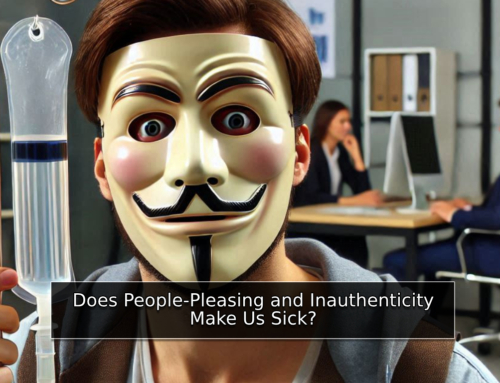Self-Sabotage: Why Do We Hurt Ourselves?
Have you ever found yourself putting off important tasks until the last minute? Or maybe you've noticed a pattern of attracting unhealthy relationships. Perhaps you're familiar with that critical inner voice or the difficulty of forming close connections. Maybe you find yourself engaging in self-harm, like cutting, starving, overeating, or neglecting your health. Or perhaps you constantly doubt your abilities and blame yourself for things that aren't your fault. If so, you might be struggling with self-sabotaging behaviors, including self-gaslighting.
What is self-sabotage?
Self-sabotage is a broad term that describes behaviors that harm us in the long run, even though they may provide temporary relief. It can manifest in various ways, such as:
- Procrastination: Delaying important tasks, even when the consequences are negative.
- Addictions: Becoming dependent on substances, behaviors, or other things to avoid unpleasant feelings.
- Excessive self-criticism: Focusing on your flaws and constantly comparing yourself to others.
- Difficulty building relationships: Struggling to connect with people deeply or repeatedly choosing incompatible partners.
- Self-harm: Physical actions that cause harm to your body, such as cutting, starving, overeating, or neglecting medical needs. Self-harm, while providing temporary relief, often exacerbates problems and leads to a cycle of pain and suffering.
- Self-gaslighting: Questioning your own reality, abilities, and perceptions. You distort your perception of reality, blaming yourself for things that aren't your fault.
Why do we do this to ourselves?
The reasons for self-sabotage are complex and varied, and may include:
- Past traumas: Traumatic experiences can shape how we perceive ourselves and the world.
- Stress and anxiety: Constant stress can lead to self-destructive behaviors as a way to cope with difficult emotions.
- Negative self-beliefs: Believing that you are unworthy, flawed, or defective can lead to harmful behaviors.
- Guilt and shame: Feeling like you deserve punishment for past mistakes.
- Low self-esteem: When you don't believe in yourself, you may choose behaviors that harm you because you feel you don't deserve better.
- Difficulty regulating emotions: Struggling with negative emotions like anger, sadness, or anxiety can lead to self-destructive behaviors as a way to cope.
- Seeking control: Sometimes, self-sabotage can be a way to try to gain control over your life, even if it's negative control.
How can we break free from this cycle?
The good news is that self-sabotage is a learned behavior, and it's possible to learn new, healthier patterns. Therapies like Cognitive Behavioral Therapy (CBT) and Acceptance and Commitment Therapy (ACT) can be very effective in addressing self-sabotage.
- CBT focuses on changing negative thought patterns and behaviors.
- ACT helps you accept your thoughts and feelings while taking action towards a meaningful life.
Remember:
- You're not alone. Millions of people struggle with self-sabotage.
- Help is available. There are effective treatments that can help you overcome self-sabotage and improve your quality of life.
- Don't ignore the problem. Self-harm and self-gaslighting are signs that you need support. Don't go through this alone.
How can you get help?
- Seek professional help: Don't hesitate to seek help from a mental health professional. A therapist can help you understand the reasons behind your self-sabotaging behaviors and develop strategies to cope.
- Build a support network: Talk to people you trust, like friends, family, or a support group.
- Practice self-care: Engage in activities you enjoy, take care of your physical health, and prioritize your mental well-being.
- Learn coping strategies: Learn relaxation techniques, meditation, or yoga to help manage stress and emotions.
- Be patient: Change takes time and effort. Don't get discouraged if you don't see immediate results.
In conclusion,
self-sabotage is a complex issue that affects many people. Understanding the underlying causes and seeking help can be the first step towards positive change. Remember, you're not alone, and there is hope for recovery.
Note: The information provided in this article is for informational purposes only and does not constitute professional medical advice. If you are struggling with self-harm or self-sabotage, please consult with a mental health professional.
Contact now
Ready to take the first step towards positive change? Contact me now for more information and to schedule an appointment. Whether you prefer in-person sessions in Tel Aviv or virtual meetings via Zoom, my integrated approach of Cognitive Behavioral Therapy (CBT) and Acceptance and Commitment Therapy (ACT) can help you break free from struggles and find greater fulfillment in life. I'll be sure to get back to you as soon as possible. Let's embark on this transformative journey together!
Call Whatsapp 052-2325511
Or fill out the following form.
Can ACT and CBT assist you or your loved ones?
Welcome to my therapy practice, where I offer a powerful combination of Cognitive Behavioral Therapy (CBT) and Acceptance and Commitment Therapy (ACT) techniques. CBT is a goal-oriented, short-term approach that's highly effective for anxiety, depression, low self-confidence, and more. ACT complements CBT, helping you navigate life's challenges and find fulfillment and authentic, happier life.
If you're struggling with anxiety, depression, low self-image, or facing setbacks, CBT combined with ACT may be the key to transforming your life. Break free from the struggle and take a step towards a happier, more fulfilling life.
Contact me today to schedule an appointment and embark on your journey of positive change. You don't have to face it alone; I'm here to support you every step of the way. Let's work together to create the life you deserve!





